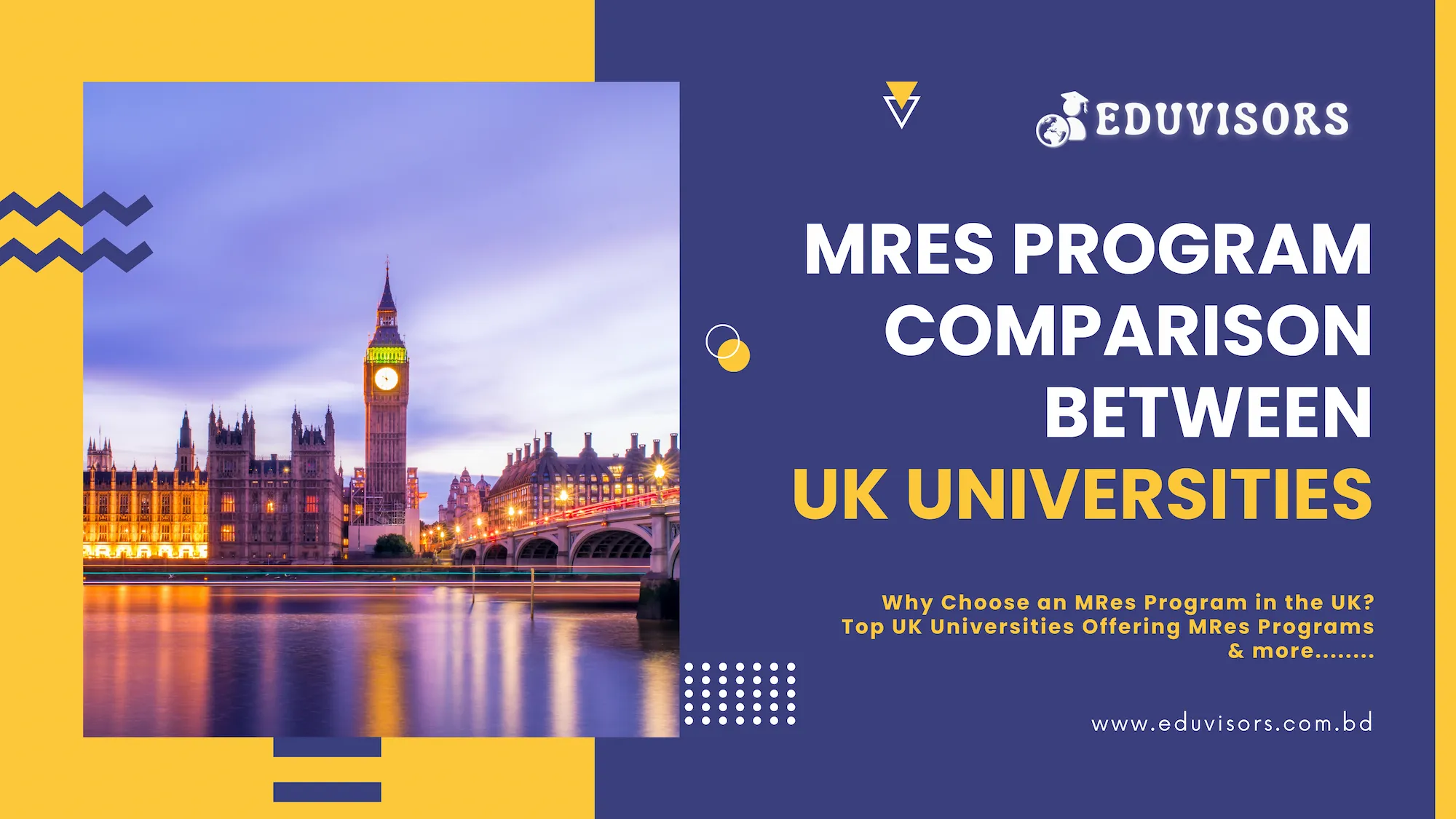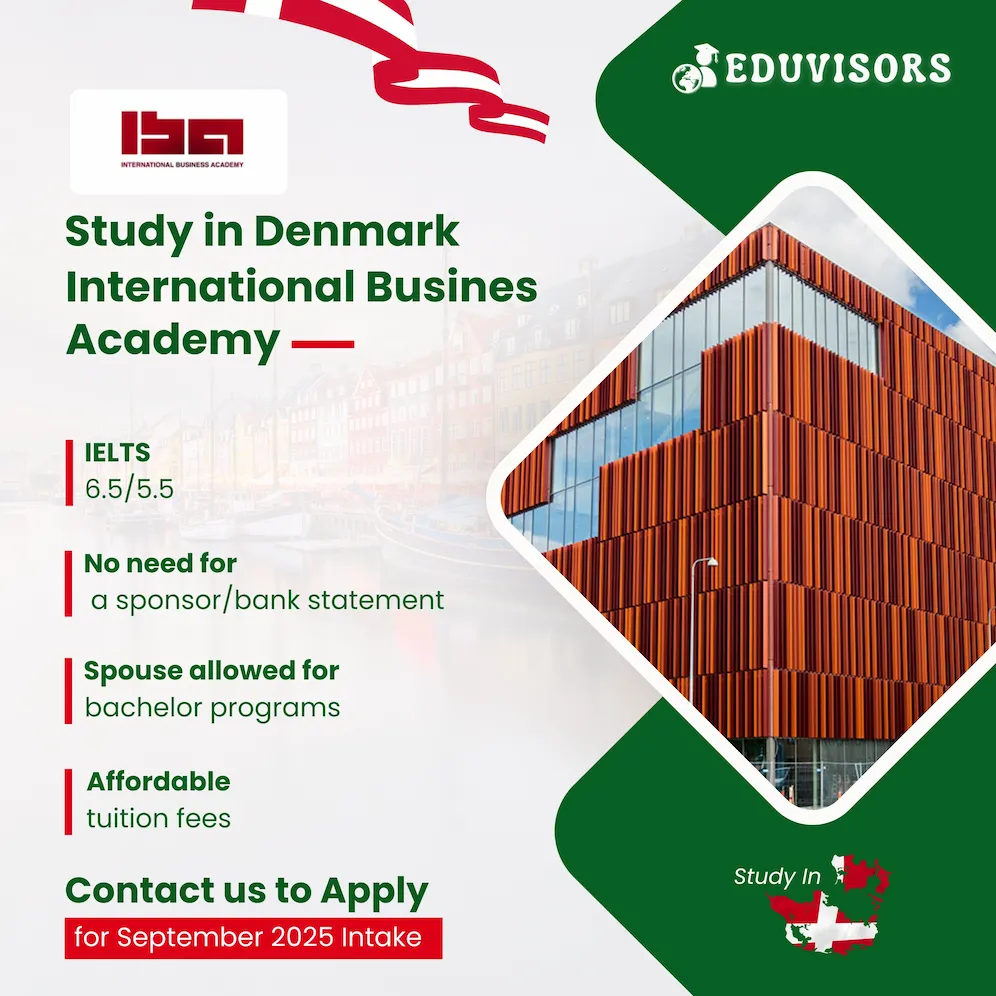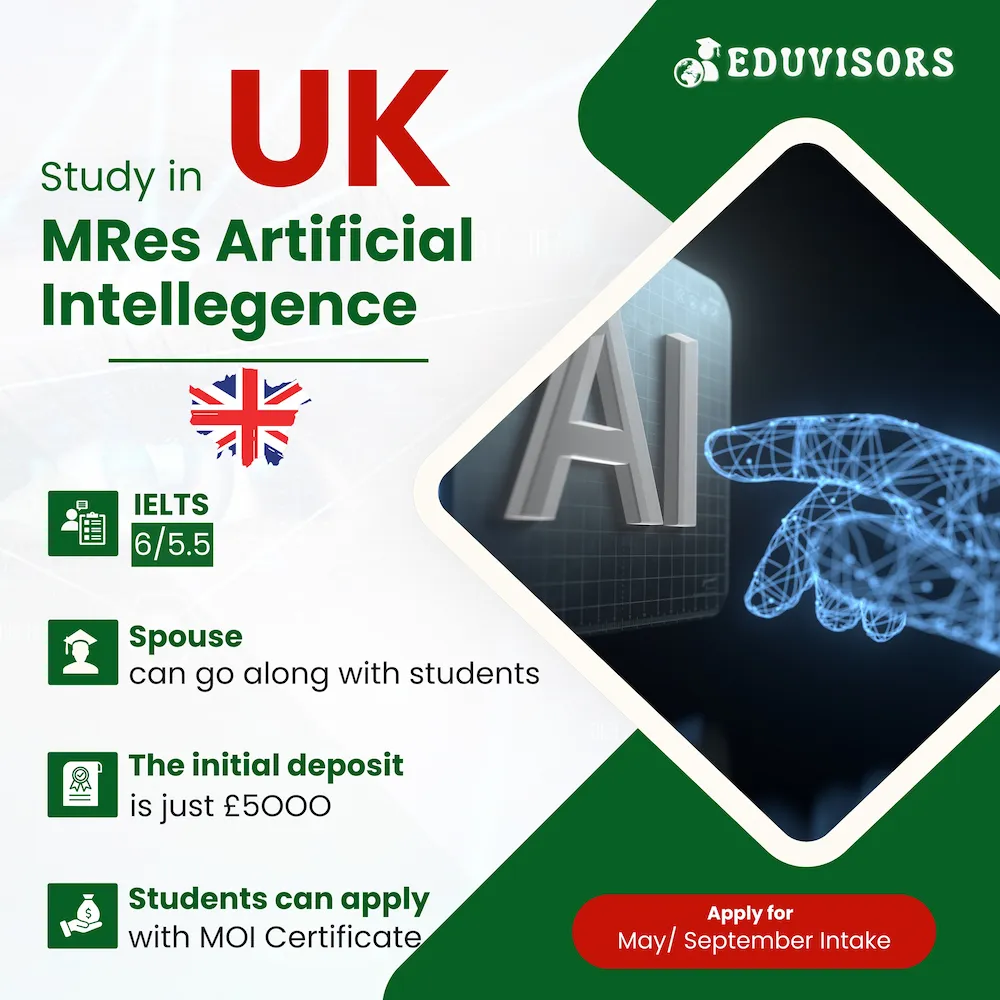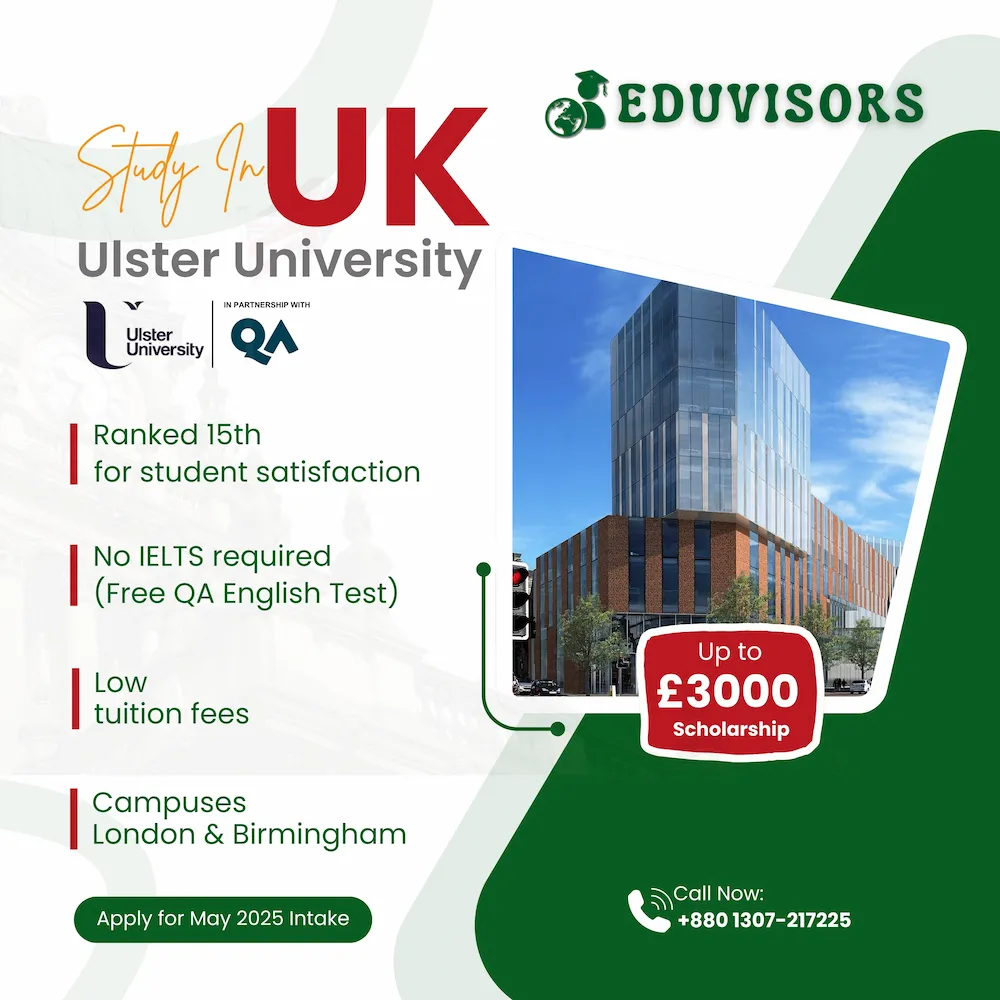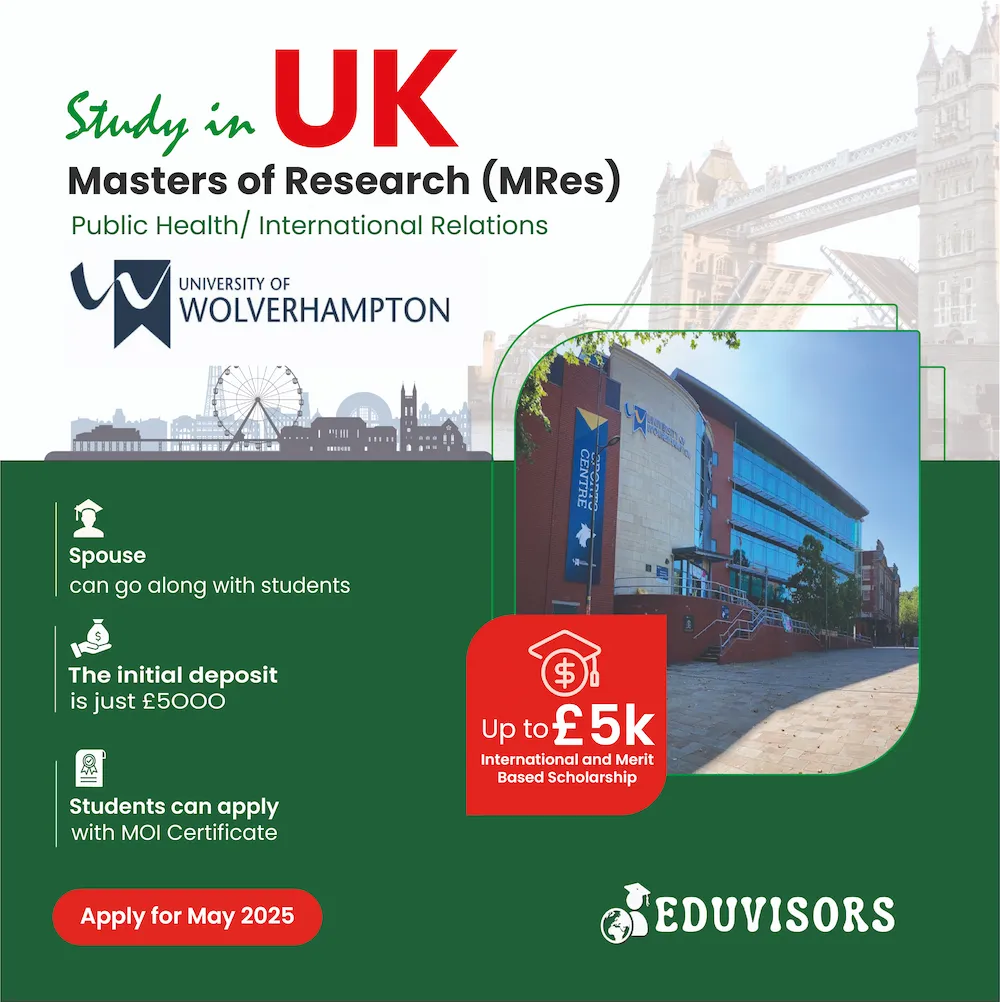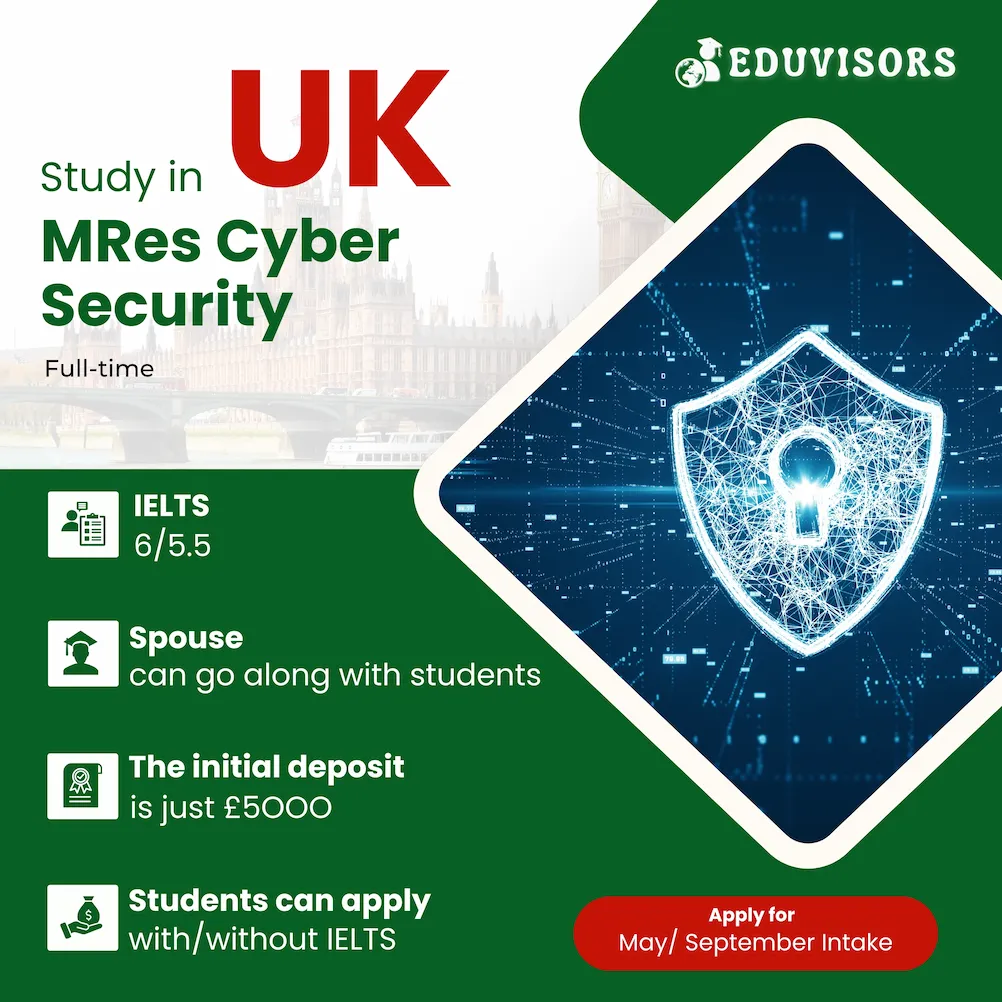A Master of Research (MRes) is a postgraduate degree designed to train students in research methodologies while allowing them to focus on a specific research project. Unlike an MSc or MA, which includes multiple taught modules, the MRes is typically research-intensive, preparing students for doctoral-level studies or roles in academia and research organizations.
Why choose the UK for an MRes?
- World-Class Research Standards: The UK is home to some of the most advanced research institutions globally.
- International Recognition: UK degrees carry a global reputation, increasing employability worldwide.
- Pathway to PhD: MRes is a stepping-stone to PhD studies and ideal for those who want to specialize in a niche field.
- Flexible Research Areas: Choose from diverse fields like Public Health, Cyber Security, AI, Sociology, and more.
- Dependants Allowed: Many UK universities offering MRes allow students to bring their spouse and children.
Top UK Universities Offering MRes Programs
Several UK universities offer MRes programs tailored to meet global research standards while remaining accessible to international students. Let’s explore some top institutions:

University of Derby
- Programs: MRes in Psychology, Computing, Business, Social Sciences
- Tuition Fees: £17,000 (Approx.)
- English Requirement: IELTS 6.5 (6.0 minimum), PTE accepted
Derby stands out for its excellent research facilities and student support services, especially in Psychology and Business research.
University of Wolverhampton
- Popular Programs: MRes Public Health, Cyber Security, International Relations, AI, Business
- Tuition Fees: £16950(Approx.)
- English Requirement: IELTS 6.5 (with no less than 6.0); OIETC also accepted
This university is especially popular among Bangladeshi students for its diverse research streams and low cost of living in Wolverhampton.
University of Gloucestershire
- Programs: MRes in Business, Humanities, Art and Design
- Tuition Fees: £13,500/year(Approx.)
- English Requirement: IELTS 6.5 (5.5 minimum in each band)
Located in a scenic countryside, this university combines creative arts with innovative research opportunities.
University of Bolton
- Programs: MRes in Health and Wellbeing, Environmental Management, Engineering
- Tuition Fees: £13,950–£14,950
- English Requirement: IELTS 6.5 (min 6.0)
Known for its practical research approach, Bolton offers a supportive academic environment perfect for students transitioning into research.
University of Lincoln
- Programs: MRes Life Sciences, Education, Computer Science
- Tuition Fees: £14,600–£15,800
- English Requirement: IELTS 6.0 (5.5 min), TOEFL accepted
Lincoln’s reputation is growing rapidly, and it’s praised for strong employer links and interdisciplinary research support.
University of Essex
- Programs: MRes in Political Science, Economics, Sociology, Finance
- Tuition Fees: £17,200–£18,000
- English Requirement: IELTS 6.5 (min 6.0), Duolingo accepted
Ranked high in research output, Essex is perfect for students aiming to engage in policy and social science research at an international level.
Here’s a useful comparison table:
| University Name | MRes Programs | Tuition Fees | English Requirements |
| University of Derby | Psychology, Computing, Business, Social Sciences | £17,000 (Approx.) | IELTS 6.5 (6.0), PTE accepted |
| University of Wolverhampton | Public Health, AI, Business, Cyber Security, International Relations | £16950(Approx.) | IELTS 6.5 (6.0), OIETC accepted |
| University of Gloucestershire | Humanities, Business, Art, and Design | £13,500/year (Approx.) | IELTS 6.5 (5.5) |
| University of Bolton | Health, Environmental Management, Engineering | £13,950–£14,950 | IELTS 6.5 (6.0) |
| University of Lincoln | Life Sciences, Education, Computer Science | £14,600–£15,800 | IELTS 6.0 (5.5), TOEFL accepted |
| University of Essex | Economics, Sociology, Political Science, Finance | £17,200–£18,000 | IELTS 6.5 (6.0), Duolingo accepted |
Application Process for MRes Programs in the UK
Applying to an MRes program in the UK involves careful preparation and timely submission of all necessary documents. Below is a guide to help prospective students through the process.
Documents Required:
- Academic transcripts and certificates
- Updated CV or resume
- Personal statement / Statement of purpose
- Two academic references
- Research proposal (if required by the program)
- Proof of English language proficiency (e.g. IELTS, OIETC)
- Valid passport copy
Step-by-Step Application Guide:
- Research and Shortlist Programs
Identify universities that offer MRes programs aligned with your research interests. - Check Entry Requirements
Review academic, research, and English language criteria on the university’s official website. - Prepare a Strong Personal Statement & CV
Emphasize your research interests, academic achievements, and motivation for pursuing an MRes. - Submit Online Application
Apply directly through the university’s application portal or UCAS Postgraduate (if available). - Provide References & Supporting Documents
Upload or send all required documents, including references and research proposals if needed. - Attend Interviews (if applicable)
Some programs may request an online interview to discuss your research goals and suitability. - Receive Offer Letter
If successful, you’ll receive either a conditional or unconditional offer. - Accept the Offer and Arrange Finances
Confirm your place, pay the deposit (if applicable), and begin preparations for your UK visa.
Post-MRes Career Opportunities and Research Prospects
Completing an MRes program in the UK opens the door to diverse career paths and advanced academic opportunities. Since the degree is heavily research-focused, it prepares graduates for both professional and scholarly futures.
Academic Pathways
Many MRes graduates progress to PhD programs, often with a head start due to the research proposal, experience, and supervisor connections built during the MRes. This is especially valuable for those aiming for careers in academia or research institutions.
Industry Roles
Graduates are well-positioned for roles in research and development, data analysis, policy research, clinical trials, or innovation departments across industries like healthcare, technology, environmental science, and business.
Public & NGO Sector
Opportunities also exist in government research bodies, nonprofits, and international organizations where evidence-based policy or social research is critical.
Teaching & Consultancy
The analytical and independent learning skills developed through the MRes are highly transferable, making graduates strong candidates for teaching roles, research consultancy, or think tanks.
Choosing the right MRes program is a significant decision, and it’s essential to align your choice with your academic goals, career aspirations, and personal circumstances. Consider factors like program structure, research opportunities, university reputation, and location to make an informed decision. Ensure you also explore the funding options available and understand the application requirements thoroughly.
An MRes is not just an academic degree; it’s a stepping stone to advanced research careers and further study opportunities, so choose a program that will help you reach your goals while providing a robust research environment and potential career benefits.


